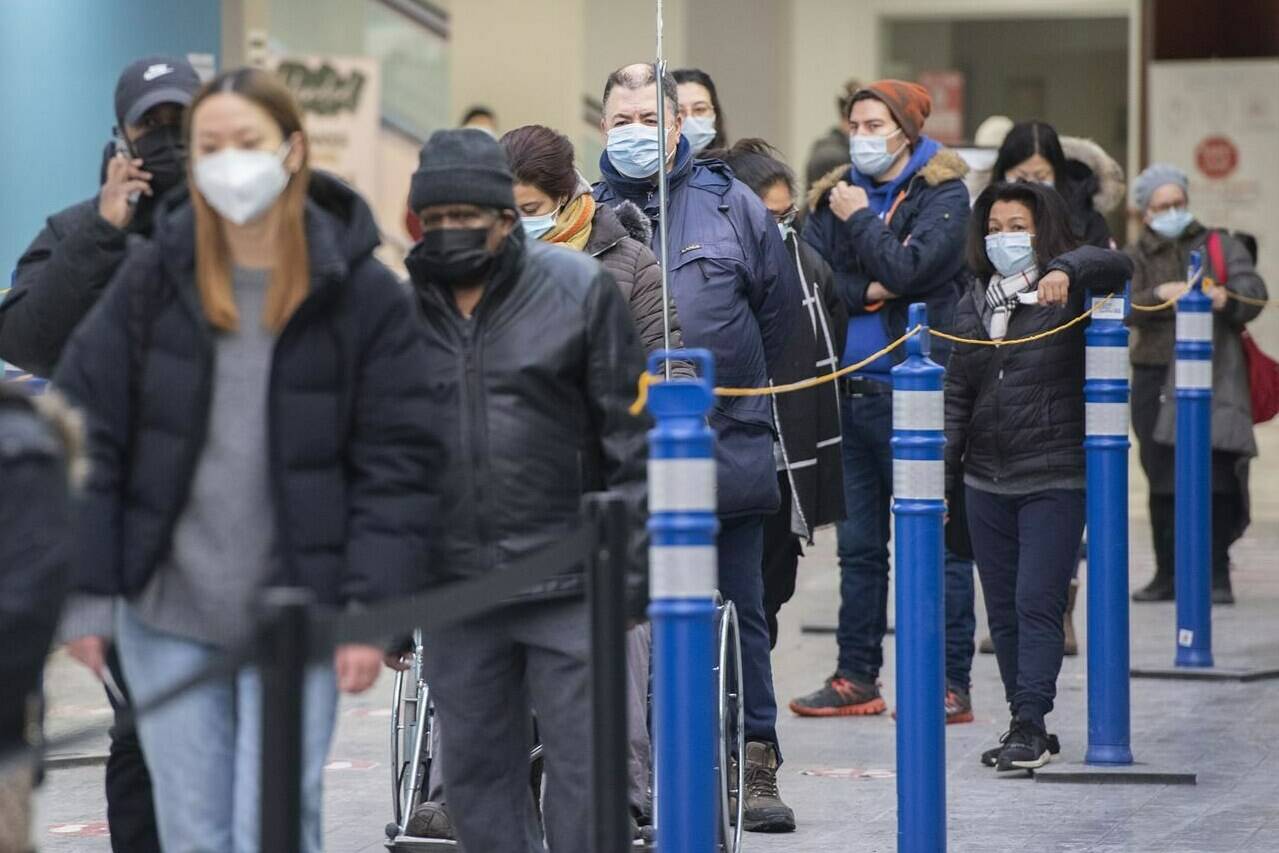Prime Minister Justin Trudeau says the first shipment of an oral COVID-19 pill is making its way across Canada but is no substitute for vaccination against the rapidly spreading virus.
The antiviral drug Paxlovid is meant to protect against hospitalization and death. Canada has purchased one million courses for delivery this year.
“It’s important to remember that this will be a powerful tool to continue to keep people from people getting extremely sick but it needs to be used right,” Trudeau said Wednesday.
“It’s not a replacement for getting vaccinated, for wearing masks, for staying safe, for keeping your distance.”
The Omicron-fuelled fifth wave of the pandemic appears to be peaking in some provinces, while others warn the worst is yet to come.
Quebec reported its lowest daily increase in COVID-19 hospitalizations with a rise of eight, bringing the total to 3,425 people in hospital. It also saw a slight decline in intensive care patients.
Meanwhile, Ontario Health Minister Christine Elliott said there are “glimmers of hope” that COVID-19 cases will peak this month with hospitalization and intensive care admissions to follow.
The province recorded a small dip in the number of people with COVID-19 in hospital to 4,132 patients from 4,183, as ICU patients rose by eight to 589. Fifty-nine new deaths were also reported.
Many types of Ontario businesses continue to be closed under public health restrictions, but Premier Doug Ford said to expect a “positive” announcement on measures later this week.
The Saskatchewan Health Authority has said it is bracing for a tide of COVID-19 hospitalizations and absenteeism among workers until mid-February, while Alberta says hospitalization rates are rising to levels not seen since mid-October.
The growing number of COVID-19 cases and hospitalizations in Prince Edward Island has prompted the province to reduce gathering sizes and close gyms and restaurant dining rooms until at least the end of the month.
—Alanna Smith, The Canadian Press
RELATED: B.C. COVID-19 hospital cases rise, but few more in intensive care
RELATED: Latest research shows Omicron infectious up to 10 days: Tam

